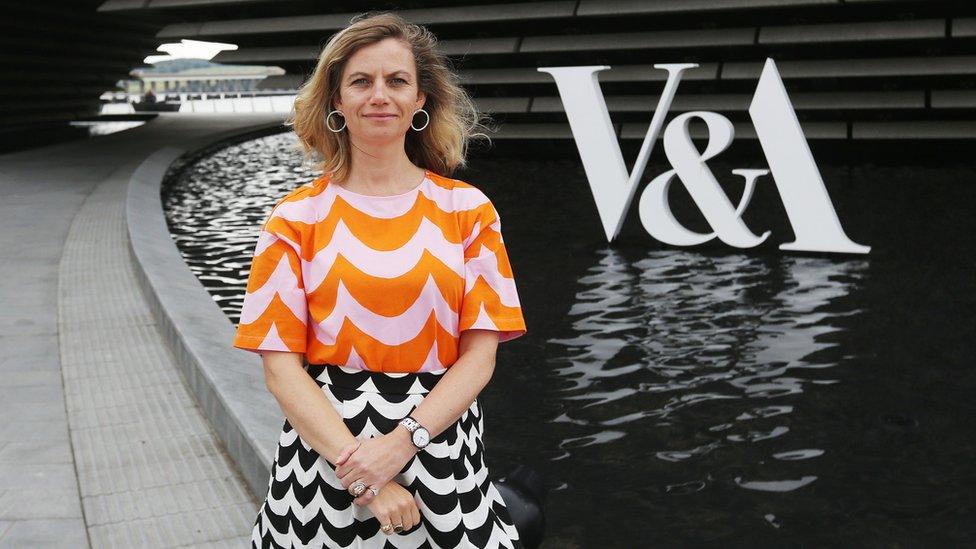V&A Dundee's new director on Covid, culture, and community
- Published
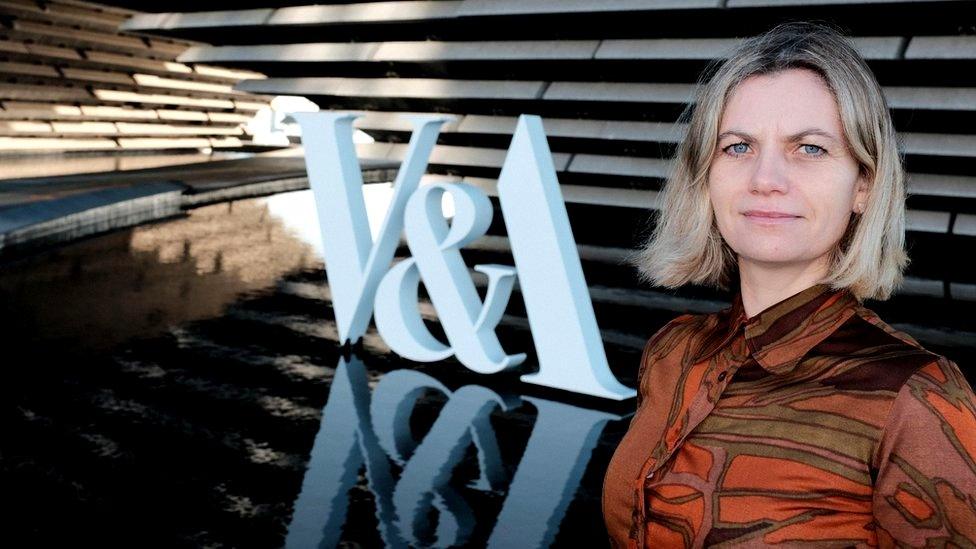
Leonie Bell was appointed director of V&A Dundee in July
Sunlight floods the first floor of V&A Dundee as its new director looks out, past the RRS Discovery, across the Tay, to the rail bridge and beyond.
"It's just makes you feel you're in this very open, calm sanctuary, in amongst all the turmoil we're all living in," says Leonie Bell.
Her museum, like every other institution, is not immune from the havoc wrought by Covid across Scotland's cultural landscape.
Currently only open five days a week, it is attracting about 800 visitors a day, compared to the 6,000 that it welcomed on its busiest day after opening in 2018.
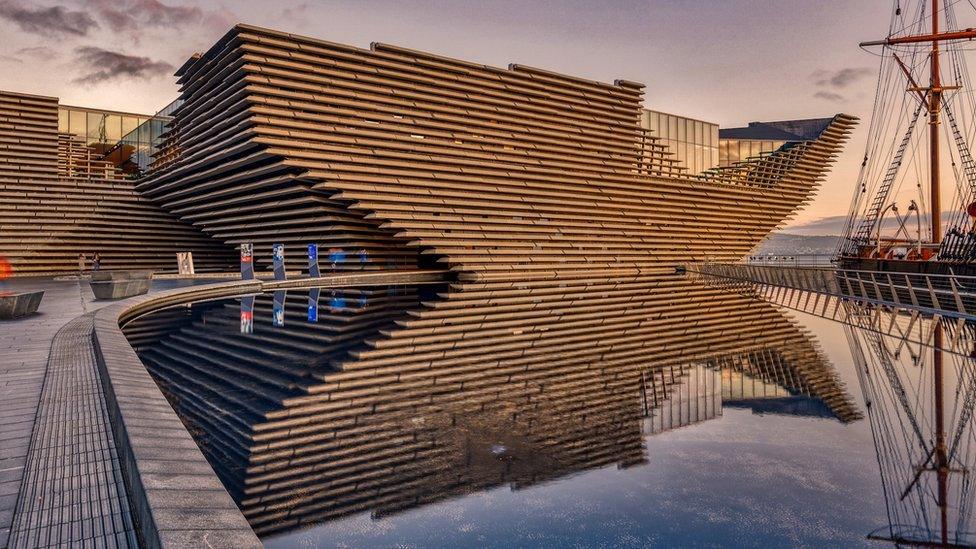
The museum is currently only open five days a week
Ms Bell, who was named as the new director in July and took up the role last month, said there was "no point in shying away" from the financial impact of the pandemic.
She welcomed the recent £1m in emergency funding that V&A Dundee received from the Scottish government, which is also giving the museum £1m per year in its first decade, external.
She said: "It's not just on things like ticket sales - the entire events programme that we were running and able to use as levering commercial income is gone.
"And as many cultural organisations know, the impact of giving from other donors is also more difficult than potentially it's ever been.
"So we will use that money really, really well. We'll use it to sustain ourselves but also to have that thriving future."
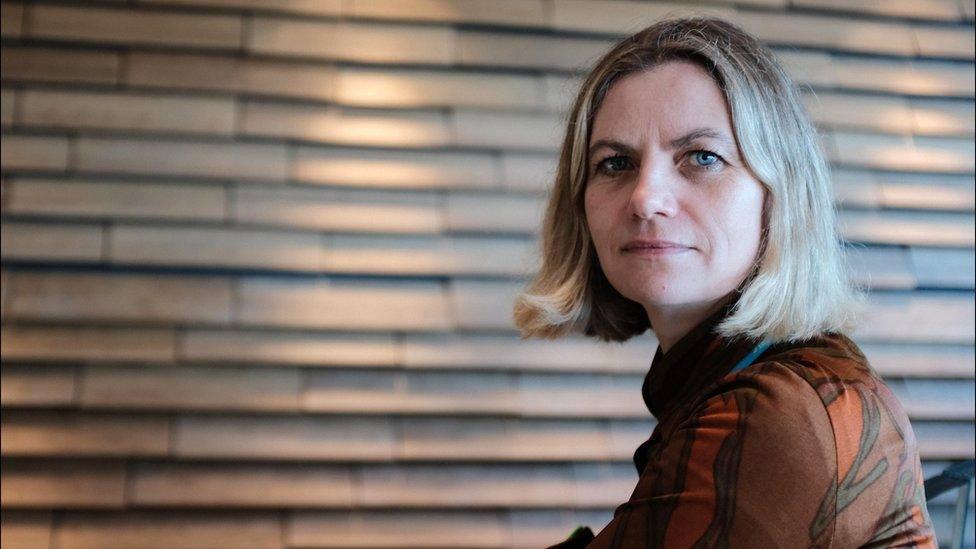
Ms Bell described the museum as an "open calm sanctuary"
Born in Dundee and raised in nearby Newport-on-Tay, Ms Bell returns to the city after leading Paisley's cultural regeneration plans., external
Before that, she developed Scotland's first culture strategy in a decade, external at the Scottish government.
One of the strategy's aims is to "recognise each community's own local cultures in generating a distinct sense of place, identity and confidence".
I ask why V&A Dundee has not yet connected with the city in the same way as Dundee Contemporary Arts, external or the McManus Gallery, external.
Ms Bell admits the museum needs to do more to develop "our root system within the city".
However, she says: "We're only two years old and I think sometimes we have to remind ourselves of that.
"We have a long, long enduring lifespan and we've still got a lot of work to do and we'll do it to the very best of our ability."
She also highlights the "extraordinary" plaza outside the museum, which last year hosted BBC's Antiques Roadshow and will soon be joined nearby by British artist Lee Simmons' giant humpback whale sculpture, external.
Some have suggested that more local content would be welcome in V&A Dundee.
Ms Bell said: "It's not just about thinking about a museum in terms of the content it produces within its own walls.
"I'm really interested in working with the city and lots of different partners and what emanates from us, work we can do across different sectors, with health, wellbeing, social justice, all those areas design is relevant to."
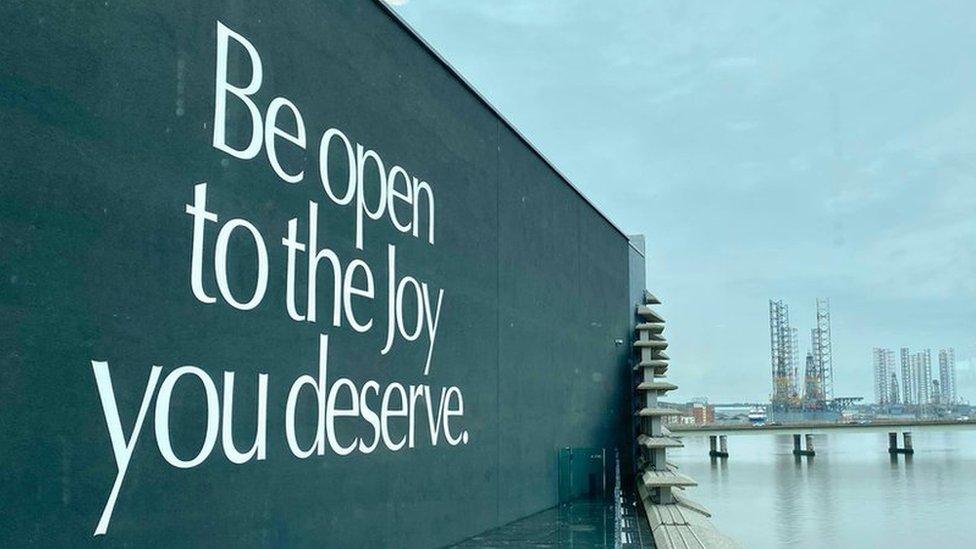
The museum unveiled a large-scale "message of hope" installation in August
Another concern is the continued criticism from some visitors that V&A Dundee lacks the content that its massive structure promises from the outside.
One comment on a popular travel site describes a recent visit as "a pleasant experience but with little meat on the bone to keep me interested".
Ms Bell said: "I think there is so much to think about in those concerns, and I take them really seriously."
However, she describes the museum's space as a "very open sanctuary", which is something special "in these terrible Covid times".
She said: "It just feels like a beautifully well-designed place in Dundee for everybody to feel welcome."
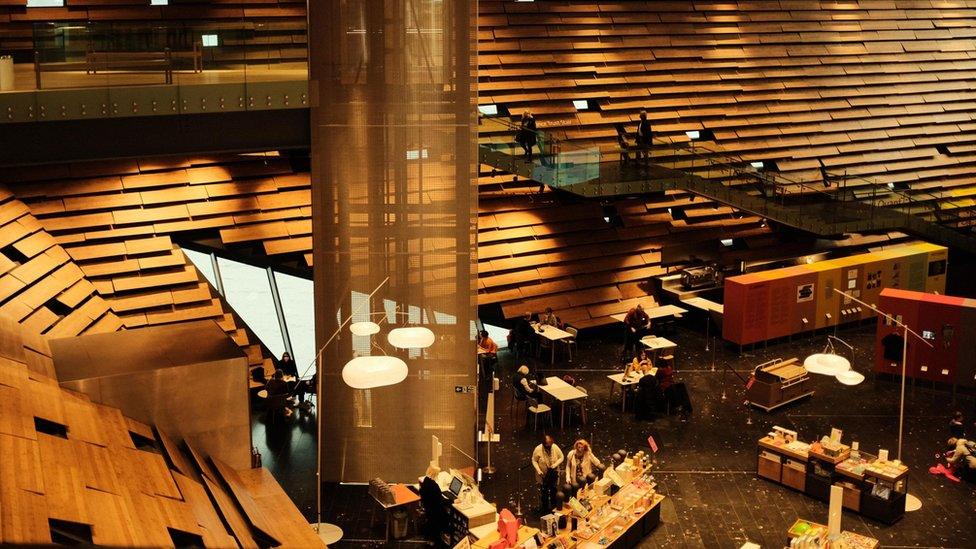
The museum has changed its ground-floor layout due to Covid restrictions
Covid restrictions have also changed the museum's layout, with an exhibition and pop-up shop now occupying the space vacated by its ground-floor café.
Ms Bell said: "We're very interested in thinking about how we are imaginative with the space, how we innovate what exhibition-making is, and how we celebrate the power and the joy of the architecture.
"But, also change the programme so people want to come back if they're living locally too."
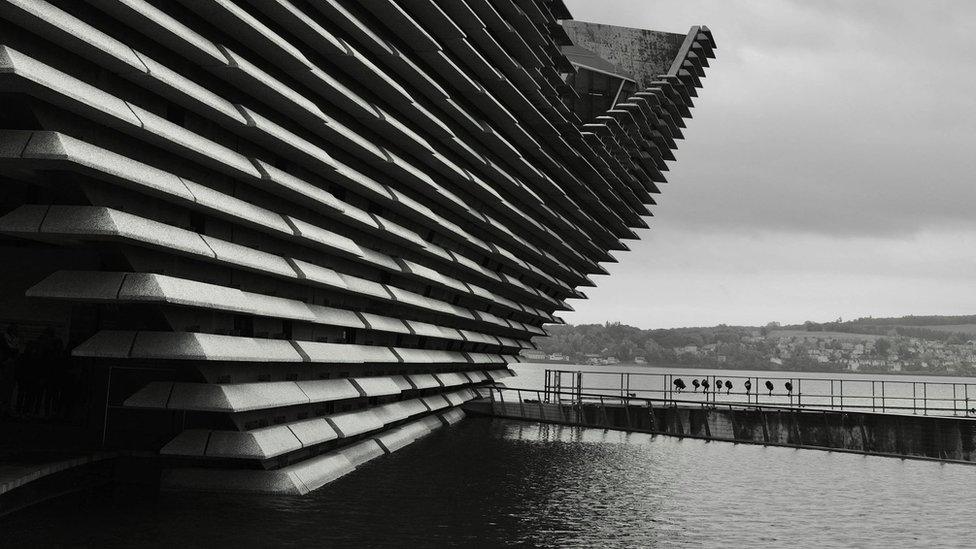
Despite the challenges in the future, Ms Bell sounded a note of optimism for the months ahead.
She said: "I think what we've proven is in the darkest of times, people turn to creativity.
"I think culture can be pioneering and progressive in how it helps us through this in a practical way.
"But also in terms of who we want to be as a society and a country as we work our way through these very difficult times."
- Published24 October 2020
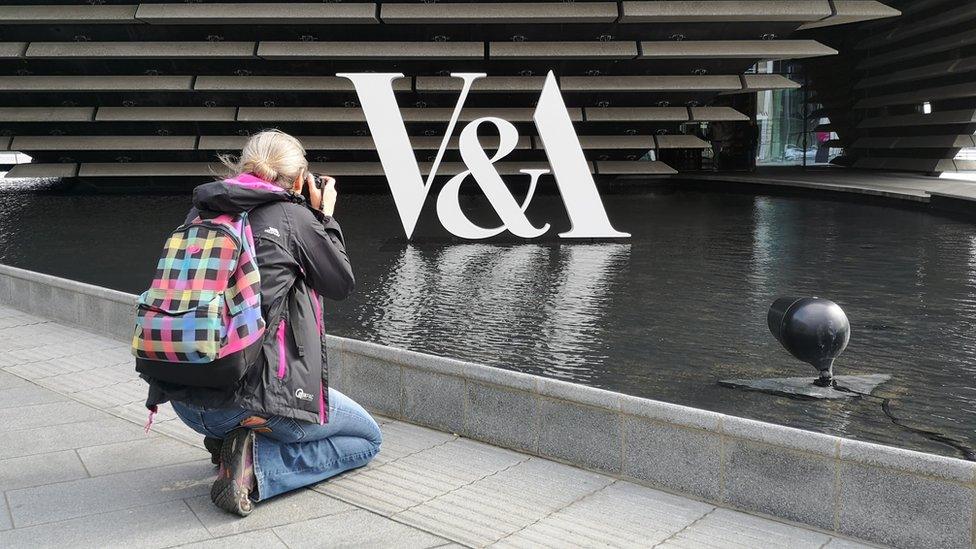
- Published10 July 2020
